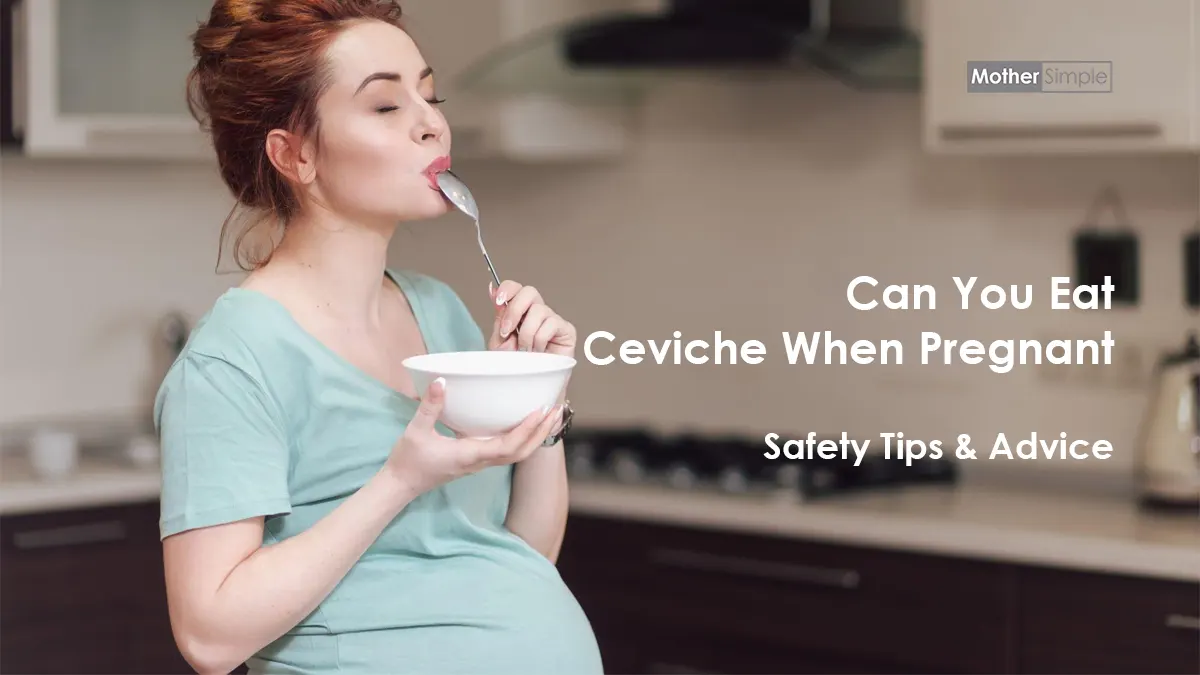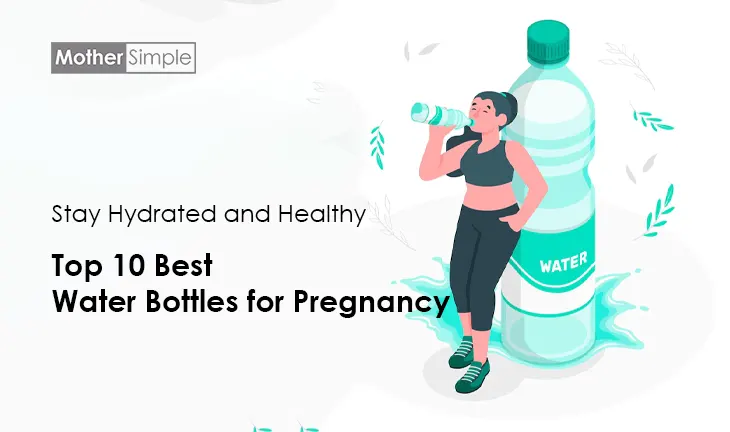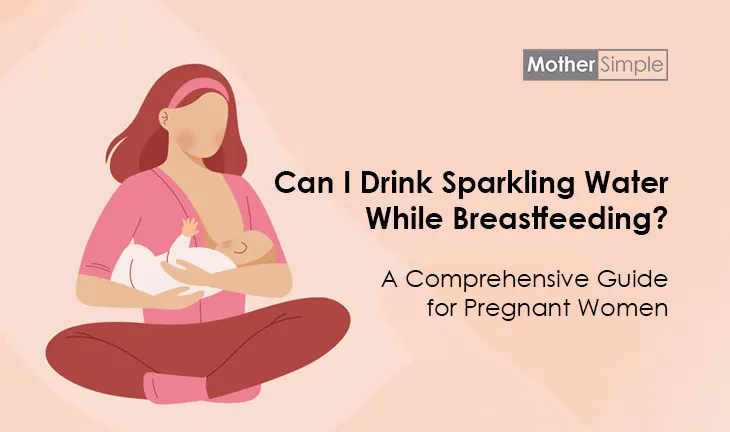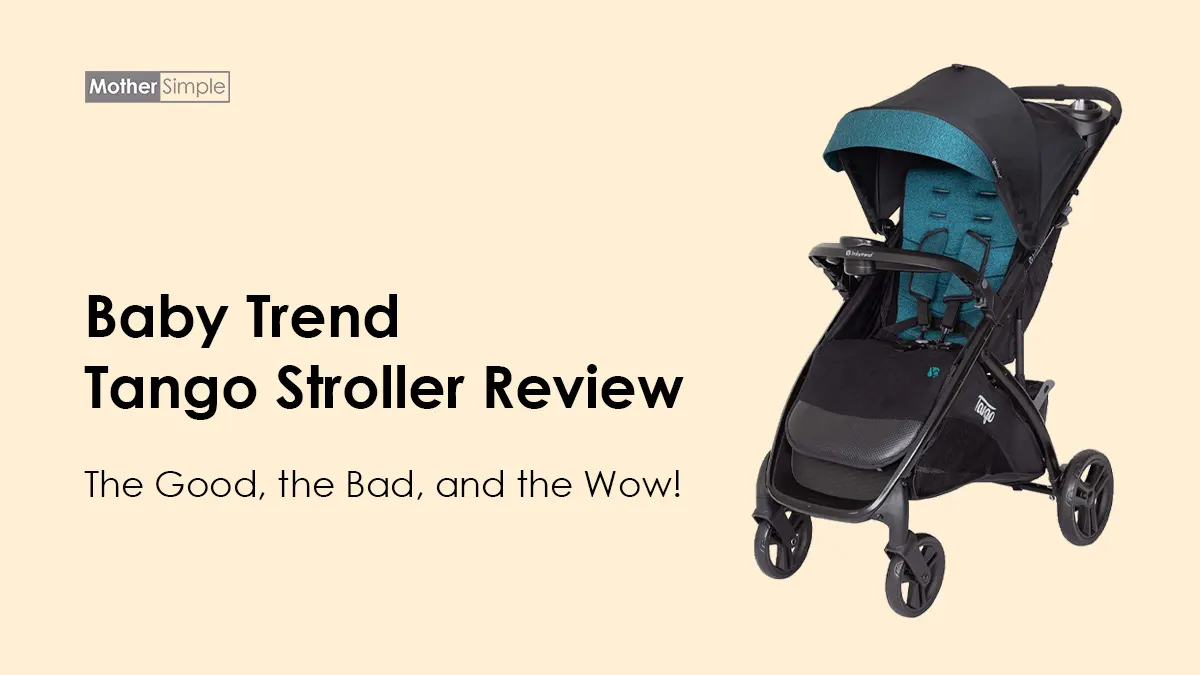Pregnancy, a journey marked by anticipation and care, prompts a series of considerations that weave through every facet of life – even the culinary ones. Amid the array of delectable dishes, one tantalizing contender beckons: ceviche.
A symphony of fresh seafood and zesty citrus, this dish boasts a flavor profile that dances on the taste buds. But as the curtain rises on the stage of pregnancy, the spotlight shifts to safety, prompting the question: Can you eat ceviche when pregnant?
Picture this – a plate adorned with an artful arrangement of diced seafood, kissed by vibrant citrus juices, and garnished with a medley of herbs.
Ceviche, a culinary masterpiece, stands as a testament to culinary innovation. Yet, beneath its alluring exterior lies a culinary crossroads that demands attention.
Pregnancy, a chapter of life characterized by meticulous choices, places the spotlight on the safety of every morsel that graces your plate.
Enter the intriguing dilemma of enjoying ceviche – a dish known for its raw seafood element. The intrigue heightens as the fragrant aromas of the dish seem to harmonize with the uncertainty in the air. What if I ate ceviche while pregnant? The question reverberates.
Ah, the undeniable desire to revel in life’s culinary pleasures is undeniable. But in the grand tapestry of nurturing your growing miracle, safety unfurls its wings as a paramount concern.
The side effects of eating ceviche while pregnant become uncharted territory, raising valid queries. Can I eat ceviche during pregnancy without worry? The answer is a quest that ignites the desire for knowledge.
In the pages that follow, we embark on a journey of culinary exploration and informed decision-making. We delve into the depths of ceviche’s components, consider the counsel of experts, and navigate the seas of safety to offer a well-rounded perspective.
As the waves of information crash against the shores of curiosity, you’ll find the compass you seek, guiding you toward a choice that marries flavor with well-being.
Intrigued? Let’s delve into the vibrant world of ceviche and pregnancy, where flavors and facts intertwine to paint a picture of culinary possibility.
Can you eat ceviche when pregnant? What if I ate ceviche while pregnant? The answers await as we embark on this journey together.
Understanding Ceviche
Ceviche: a symphony of flavors that dance on your taste buds, a dish that carries the essence of the sea and the zest of the tropics.
In this article, we’re diving into the depths of ceviche, unraveling its secrets, ingredients, and intriguing variations. So, if you’ve ever found yourself wondering, “What is ceviche?” prepare to embark on a tantalizing journey.
What is Ceviche? A Delightful Dive into This Refreshing Dish
Ceviche is not just food; it’s an experience that transports you to sun-kissed beaches and bustling seafood markets.
At its core, ceviche is a dish that showcases the magical transformation that occurs when fresh seafood meets the vibrant embrace of citrus juices.
Imagine tender morsels of fish, shrimp, or octopus, marinating in a citrusy elixir that not only imparts a tangy zing but also cures the seafood to perfection.
This dish hails from the coastal regions of Central and South America, where it’s not just a meal but a celebration of the ocean’s bounty.
It’s a masterpiece that requires precision and patience. As the seafood “cooks” in the acidic embrace of lime or lemon juice, its texture becomes delicate, its flavor brightens, and any lingering fishy notes vanish like morning mist.
The Ingredients: Fresh Seafood, Citrus Juices, and a Burst of Flavors
At the heart of every great ceviche is the quality of its ingredients. Picture this: the finest cuts of seafood, sourced locally and sustainably, are transformed into a symphony of taste. Here’s what a typical ceviche might include:
- Seafood: Freshness is non-negotiable. Opt for fish, shrimp, octopus, or even scallops. Their tenderness and flavor will elevate your ceviche.
- Citrus Juices: Lime and lemon are the usual suspects, injecting the dish with their tangy brightness. The acidity in these juices is not just about flavor; it’s the culinary magic that “cooks” the seafood.
- Aromatics: Red onions, cilantro, and a touch of garlic bring depth and fragrance to the mix. They’re the supporting cast that adds complexity to the starring seafood.
- Heat: A sprinkle of chili peppers or a dash of hot sauce awakens your taste buds, infusing the dish with a gentle warmth that complements the coolness of the seafood.
- Seasonings: A pinch of salt and pepper is like the conductor’s baton, orchestrating the harmony of flavors.
Imagine the zesty aroma that fills the air as these ingredients mingle, creating a delightful anticipation that’s almost as satisfying as the first bite itself.
Ceviche Variations: Exploring Different Regional Twists on the Classic Recipe
Just as the ocean’s tides change, so does the world of ceviche. Across different regions, this dish takes on unique twists that showcase the culinary diversity of the world. Here are a few variations to tickle your taste buds:
- Peruvian Ceviche: Creamy chunks of fish, sweet potatoes, and corn create a balanced masterpiece, often accompanied by a drizzle of spicy rocoto pepper cream.
- Mexican Ceviche: Tomatoes, cucumbers, and avocados join the seafood party, making it a refreshing and chunky delight.
- Japanese Ceviche: Known as “Tiradito,” it features thinly sliced fish adorned with delicate sauces like ponzu, mirin, and sesame oil.
- Ecuadorian Ceviche: Picture shrimp kissed by the tropical flavors of orange juice, tomato sauce, and a refreshing touch of orange soda.
Can You Eat Ceviche When Pregnant?
Of course, I’d be glad to help with your question. When it comes to pregnancy, it’s important to be cautious about the foods you consume to ensure the health and safety of both you and your baby. Ceviche is a dish made from raw fish or seafood that’s marinated in citrus juices like lime or lemon. While it can be a delicious and nutritious option due to its high protein and vitamin content, there are some considerations to keep in mind.
Raw fish and seafood may carry a risk of harmful bacteria and parasites, such as listeria, salmonella, and toxoplasma, which can potentially lead to foodborne illnesses. These illnesses can be especially concerning during pregnancy, as they might cause more severe symptoms or affect the baby’s development.
To enjoy ceviche safely while pregnant, consider the following tips:
- Choose Safe Fish: Opt for fish that is known to have lower levels of mercury, such as shrimp, and crab, or cooked fish like salmon. High mercury intake can be harmful to a developing baby’s nervous system.
- Use Quality Ingredients: Ensure that the fish and other seafood used in the ceviche is fresh, sourced from a reputable supplier, and handled properly.
- Adequate Marination: If you’re making ceviche at home, marinate the seafood in citrus juices for an adequate amount of time. The acid in citrus juices can help reduce the risk of harmful microorganisms.
- Consider Cooking Alternatives: If you’re concerned about eating raw seafood, you might consider enjoying cooked versions of similar dishes, like shrimp cocktails or grilled fish.
- Moderation is Key: As with any food during pregnancy, moderation is important. Don’t make ceviche the mainstay of your diet, but rather enjoy it as an occasional treat.
- Consult Your Healthcare Provider: It’s always a good idea to consult your healthcare provider before making any significant changes to your diet during pregnancy. They can provide personalized guidance based on your individual health and pregnancy.
Remember that everyone’s health needs and tolerances can vary, so discussing your dietary choices with a healthcare professional is the best way to make informed decisions for you and your baby.
Pregnancy Nutrition 101
Bringing a new life into the world is a wondrous journey, and one that calls for utmost care, especially when it comes to nutrition.
In this comprehensive guide, we’ll unravel the importance of a balanced diet during pregnancy, shed light on the essential nutrients for expectant mothers, and navigate the waters of safe seafood consumption.
Let’s dive into the depths of pregnancy nutrition with confidence and clarity.
The Importance of a Balanced Diet During Pregnancy
A nourishing diet is the cornerstone of a healthy pregnancy. As your body embarks on this remarkable voyage, it’s vital to provide it with the fuel it needs to support both you and your growing baby. A balanced diet lays the foundation for:
- Optimal Fetal Development: The nutrients you consume directly influence your baby’s growth and development. A well-rounded diet ensures that your little one receives the building blocks they need to thrive.
- Maternal Health: Pregnancy places extra demands on your body. A balanced diet helps prevent deficiencies, supports your immune system, and provides the energy necessary for a smooth pregnancy journey.
- Energy Levels: The journey of motherhood can be exhausting, both physically and mentally. A balanced diet helps sustain your energy levels, keeping fatigue at bay.
Key Nutrients for Expectant Mothers and Their Role in Fetal Development
Certain nutrients play a starring role in nurturing a healthy pregnancy. Here’s a snapshot of these vital nutrients and the roles they play:
- Folic Acid: This B vitamin is a superhero when it comes to preventing neural tube defects in the developing fetus. Leafy greens, legumes, and fortified grains are excellent sources.
- Iron: As blood volume increases during pregnancy, so does the demand for iron. This mineral supports the production of red blood cells, preventing anemia. Lean meats, beans, and fortified cereals are iron-rich choices.
- Calcium: Your baby’s bones and teeth are forming, and calcium is their trusty building material. Dairy products, fortified plant-based milk, and leafy greens are calcium-packed options.
- Omega-3 Fatty Acids: These healthy fats are essential for brain and eye development. Fatty fish like salmon (cooked, of course) and walnuts are omega-3-rich choices.
- Protein: As the body’s building blocks, proteins are crucial for both you and your baby. Lean meats, poultry, dairy, legumes, and nuts are great sources.
- Vitamin D: Working in tandem with calcium, vitamin D ensures proper bone development. Exposure to sunlight and fortified foods can help you meet your vitamin D needs.
Safe Seafood Options: A Guide to Choosing Pregnancy-Friendly Fish
Ah, seafood—the culinary treasure trove that might leave you wondering about safety during pregnancy. While you might be tempted by the thought of ceviche, it’s essential to make informed choices:
- Can You Eat Ceviche When Pregnant? Ceviche often involves raw seafood, which could harbor harmful bacteria or parasites. It’s best to steer clear of raw or undercooked fish during pregnancy.
- Pregnancy-Friendly Seafood: Not all seafood is off-limits. Opt for cooked options like fully cooked fish (e.g., salmon, tilapia), shrimp, and canned tuna. These choices are lower in mercury, which can be harmful in high amounts.
- Mercury Concerns: High-mercury fish (like shark, swordfish, and king mackerel) should be avoided during pregnancy, as mercury can affect the baby’s nervous system.
- Variety Matters: When indulging in seafood, aim for a variety of options to diversify your nutrient intake and minimize exposure to any potential contaminants.
In conclusion, nurturing a healthy pregnancy through nutrition is a journey of care and consideration. A balanced diet enriched with essential nutrients provides a strong foundation for both you and your baby.
While the allure of seafood, like ceviche, is undeniable, it’s important to prioritize safety by choosing cooked and pregnancy-friendly fish options.
Your journey to motherhood deserves nothing but the best, and that begins with the nourishment you provide.
As you savor each bite that supports your baby’s growth and well-being, remember that your informed choices echo the love and dedication you already have for the life growing within you.
With these insights, you’re better equipped to make choices that prioritize the health and happiness of both you and your little one.
Safety First: Eating Seafood During Pregnancy
When it comes to pregnancy, ensuring your diet supports both your health and the growth of your precious baby takes center stage.
Seafood, often celebrated for its nutritional benefits, calls for a closer look to make informed choices that prioritize safety and well-being.
In this guide, we’re diving deep into the world of seafood during pregnancy, shedding light on mercury content, highlighting high mercury fish to avoid, and guiding you towards pregnancy-safe fish options.
Let’s embark on this journey armed with knowledge and confidence.
The Lowdown on Mercury Content in Seafood and Its Impact
Mercury, a naturally occurring element, finds its way into our waters and subsequently, into seafood.
While some seafood options offer a plethora of health benefits, mercury content can pose risks, especially during pregnancy. Here’s the scoop:
- Mercury and Pregnancy: High levels of mercury exposure can harm a developing baby’s nervous system, affecting their cognitive and motor skills.
- Mercury Accumulation: Predatory fish, often higher up in the food chain, accumulate more mercury as they consume smaller fish. This means larger fish can have higher mercury levels.
- Balancing Benefits and Risks: While seafood provides essential nutrients like omega-3 fatty acids, protein, and minerals, it’s crucial to strike a balance to reap the benefits without the potential risks.
High Mercury Fish to Avoid During Pregnancy
Certain fish are notorious for their high mercury content and are best avoided during pregnancy. Here’s a list to keep in mind:
- Shark: This apex predator tops the list for mercury content. Its consumption during pregnancy can be harmful.
- Swordfish: Another large fish with high mercury levels. Steering clear of swordfish is a safe choice.
- King Mackerel: Known for its strong flavor, this fish packs a punch of mercury that’s not suitable for expectant mothers.
- Tilefish: Found in the Gulf of Mexico, tilefish contains high levels of mercury, making it unsuitable for pregnancy consumption.
Pregnancy-Safe Fish Options: Making Informed Choices for a Healthy Diet
Fear not, for not all fish are off the menu! There’s a world of pregnancy-safe fish waiting to provide you with essential nutrients:
- Salmon: Rich in omega-3 fatty acids and low in mercury, salmon is a superstar choice for pregnancy.
- Trout: A freshwater gem that’s packed with protein and low in mercury.
- Tilapia: This mild-flavored fish is not only low in mercury but also a great source of protein.
- Cod: Known for its delicate taste and flaky texture, cod is a safe and versatile option.
- Canned Tuna: Opt for light canned tuna over white tuna, as it generally contains lower mercury levels.
Remember, enjoying seafood during pregnancy is about making informed choices. Aim for variety, incorporate a range of pregnancy-safe fish, and limit your consumption of high-mercury fish.
By doing so, you’re nourishing both your body and your baby with the goodness of the sea, without compromising safety.
As you savor each bite of your thoughtfully selected seafood, you can be confident in your choices. Your journey through pregnancy is a testament to your dedication and love for the life within you.
By prioritizing your health and the health of your baby, you’re ensuring a brighter, healthier future for both of you.
So go ahead, relish those pregnancy-safe fish, and embrace the journey with joy and knowledge as your trusted companions.
Ceviche and Pregnancy: Weighing the Pros and Cons
Embarking on the journey of pregnancy means making conscious choices about what goes into your body.
When it comes to the tempting world of ceviche, a dish celebrated for its vibrant flavors, it’s important to consider both its potential risks and benefits.
In this guide, we’ll dive into the discussion about enjoying ceviche during pregnancy—weighing the pros and cons to help you make an informed decision that prioritizes your well-being and that of your baby.
The Potential Risks of Consuming Raw Seafood During Pregnancy
Ceviche, a dish that often features raw seafood marinated in citrus juices, can bring culinary delight, but it also raises questions about safety during pregnancy. Here’s what you need to know:
- Bacterial Concerns: Raw seafood carries a risk of harmful bacteria and parasites that can lead to foodborne illnesses. Pregnancy weakens the immune system, making you more susceptible to these risks.
- Mercury Awareness: While ceviche may involve small fish like shrimp or smaller species, it’s important to be mindful of mercury content. High mercury levels in some fish can harm your baby’s developing nervous system.
Benefits of Ceviche: Rich in Protein, Vitamins, and Omega-3 Fatty Acids
Amidst the considerations, it’s worth acknowledging the nutritional value that ceviche brings to the table. Here are the potential benefits:
- Protein Powerhouse: Ceviche is a protein-packed dish, and protein is crucial for the development of your baby’s tissues, muscles, and organs.
- Vitamin Boost: The addition of fresh vegetables and herbs provides a dose of vitamins like vitamin C, which supports your immune system and aids in iron absorption.
- Omega-3 Fatty Acids: Some fish used in ceviche, like salmon, offer a dose of omega-3 fatty acids that promote brain and eye development in your baby.
Balancing Risks and Rewards: Making an Informed Decision About Enjoying Ceviche
When it comes to consuming ceviche during pregnancy, striking a balance between risks and rewards is key:
- Moderation: If you’re craving ceviche, consider enjoying a cooked version instead. Cooking seafood helps eliminate harmful bacteria and parasites.
- Variety: Opt for other cooked seafood options that are lower in mercury. This way, you can still enjoy the benefits of seafood without compromising safety.
- Consult Your Healthcare Provider: Your healthcare provider is your partner in making informed decisions during pregnancy. If you’re unsure about consuming ceviche, it’s always wise to seek their guidance.
In the end, the decision of whether to enjoy ceviche during pregnancy is a personal one. By arming yourself with knowledge, you’re empowered to make choices that align with your priorities for a healthy pregnancy journey.
While the burst of flavors in ceviche is enticing, remember that there are equally delicious and safe ways to nourish yourself and your baby.
As you navigate this chapter of your life, know that your thoughtful consideration of what you consume reflects the care and love you have for your growing baby.
By staying informed and making choices that prioritize safety and well-being, you’re embracing motherhood with wisdom and grace.
Safe Ceviche Consumption
Indulging in the exquisite flavors of ceviche while pregnant is a delightful thought. However, considering safety is paramount.
Here’s your guide to savoring this dish without compromising your health or your baby’s wellbeing.
Preparing Ceviche at Home: Tips for Minimizing Potential Risks
Creating ceviche in your kitchen allows you to take control of the ingredients and the preparation process. Here’s how:
- Quality Matters: Source fresh, high-quality seafood from reputable sources. This reduces the risk of harmful contaminants.
- Thorough Cooking: Consider pre-cooking the seafood before marinating. Cooking eliminates bacteria and parasites that could pose a risk during pregnancy.
Marinating Seafood: How Citrus Juices Help Reduce Bacterial Contamination
The magic of ceviche lies in the marination process. Citrus juices play a pivotal role in reducing potential risks:
- Acidic Action: The high acidity in citrus juices, like lemon and lime, helps “cook” the seafood by denaturing proteins and eliminating harmful microorganisms.
- Marination Time: Longer marination times enhance safety. Allow the seafood to marinate for a sufficient period before consumption.
Best Practices: Sourcing, Storing, and Handling Seafood for Ceviche
Mastering safe ceviche consumption involves adopting best practices throughout the journey:
- Sourcing: Choose low-mercury fish options for your ceviche. Opt for those recommended as safe during pregnancy.
- Storing: Keep seafood refrigerated before and after cooking. Consume ceviche immediately or store it in the refrigerator for a short duration.
- Handling: Practice impeccable hygiene while handling seafood. Thoroughly wash hands, utensils, and surfaces to prevent cross-contamination.
Cravings and Alternatives
Pregnancy cravings can be intense, and the allure of ceviche might be hard to resist. Let’s explore safe alternatives and creative recipes that satisfy your cravings while keeping you and your baby safe.
Dealing with Pregnancy Cravings: The Struggle Is Real
Cravings are a hallmark of pregnancy. While it’s normal to have intense desires for certain foods, safety remains a priority.
- Mindful Choices: Acknowledge your cravings while making conscious choices that prioritize your health and the baby’s development.
- Balanced Diet: Ensuring you maintain a balanced diet with a variety of nutrients can help manage cravings.
Safe Alternatives to Raw Seafood Ceviche
To satiate your cravings for ceviche, consider these safe alternatives:
- Cooked Seafood Ceviche: Opt for cooked shrimp or crab in your ceviche. Cooking eliminates the risks associated with raw seafood.
- Plant-Based Options: Experiment with plant-based alternatives. Think avocado, mango, and cucumber ceviche marinated in citrus juices.
Creative Recipes: Cooked Seafood Ceviche and Plant-Based Options
Unleash your culinary creativity with these safe and scrumptious recipes:
- Cooked Shrimp Ceviche: Marinate pre-cooked shrimp in lemon juice, adding diced tomatoes, red onion, and cilantro for a burst of flavor.
- Mango-Avocado Ceviche: Combine diced mango, avocado, red pepper, and red onion. Marinate in lime juice for a refreshing and safe delight.
Remember, your journey through pregnancy is a unique chapter, and your cravings can be met with inventive and safe options.
By making informed choices and embracing creative alternatives, you’re nurturing both your well-being and the health of your baby. It’s a journey worth savoring, one bite at a time.
Expert Opinions and Guidelines
Navigating the world of pregnancy nutrition requires a compass of expert opinions and established guidelines.
When it comes to enjoying ceviche during this precious time, let’s delve into the insights of healthcare professionals and official recommendations, ensuring you’re well-informed to make the best choices for you and your baby.
Insights from Healthcare Professionals on Consuming Ceviche During Pregnancy
Gaining insights from those in the medical field can provide valuable guidance:
- Healthcare Expertise: Healthcare professionals emphasize the importance of balancing cravings with safety during pregnancy.
- Risk Assessment: Many experts advise against raw seafood due to potential risks of foodborne illnesses. Cooking seafood thoroughly is generally recommended.
Official Guidelines: What Health Organizations Recommend About Seafood Intake
Prominent health organizations offer guidelines that echo the importance of informed consumption:
- FDA Guidelines: The U.S. Food and Drug Administration (FDA) suggests pregnant women avoid raw or undercooked seafood due to potential contamination.
- Seafood Choices: Both the FDA and the American College of Obstetricians and Gynecologists (ACOG) emphasize the benefits of consuming low-mercury fish for essential nutrients.
Moderation Is Key: Incorporating Ceviche into a Well-Rounded Pregnancy Diet
While there are considerations, moderation can play a role in your pregnancy diet:
- Occasional Indulgence: If you’re craving ceviche, consider enjoying it as an occasional treat while prioritizing cooked seafood.
- Balanced Nutrition: Remember that a balanced diet, rich in a variety of nutrients, supports your baby’s development and your overall well-being.
Consulting Your Healthcare Provider
Personalized medical advice is a compass that guides you through the intricacies of pregnancy:
- Individual Factors: Each pregnancy is unique. Consulting your healthcare provider ensures that advice aligns with your health and circumstances.
- Open Dialogue: Discuss your dietary preferences, concerns, and cravings with your doctor. They can provide tailored recommendations.
- Informed Choices: Armed with professional advice, you’re empowered to make well-informed decisions about including ceviche in your diet.
As you journey through pregnancy, remember that expert opinions and personalized advice are your trusted allies.
By blending their insights with your own instincts, you’re crafting a nourishing path that supports both your health and the health of your growing baby.
As you consider the possibilities of enjoying ceviche, let the wisdom of healthcare professionals guide you toward a pregnancy diet that’s not only delicious but also safe.
Conclusion
As you journey through the remarkable phase of pregnancy, embracing both its joys and challenges, your dietary choices play a significant role in nurturing your health and the well-being of your developing baby.
The topic of enjoying ceviche during this time invites thoughtful consideration and informed decision-making. Let’s recap the insights and takeaways that empower you on this path.
Embracing the Journey: Navigating Pregnancy Cravings and Dietary Decisions
Pregnancy is a unique voyage, where cravings ebb and flow like gentle tides. Navigating these cravings with mindfulness and awareness can lead to choices that honor both your desires and the health of your baby.
- Craving Consciousness: Recognizing cravings is a part of the journey. By being conscious of your body’s signals, you can make choices that align with your well-being.
- Nutritional Balance: Maintaining a balanced diet, filled with a variety of nutrients, fuels your body and supports the growing life within you.
Ceviche: A Delightful Indulgence or a Cautious Omission?
The allure of ceviche, with its burst of flavors and textures, presents a choice that reflects your dedication to the well-being of your baby.
- Benefits and Considerations: Ceviche offers potential nutritional benefits but comes with safety considerations. Cooking seafood or exploring alternatives can be a delicious way to enjoy similar flavors.
- Informed Choices: Armed with expert insights and official guidelines, you’re equipped to make choices that prioritize both your cravings and safety.
Empowerment Through Knowledge: Making the Best Choices for a Healthy Pregnancy
In this journey, knowledge truly is power. Your choices are informed and thoughtful, guided by insights from healthcare professionals and your own intuition.
- Personalized Approach: Consulting your healthcare provider ensures a tailored approach to your dietary decisions, aligning with your health and pregnancy journey.
- Empowerment in Choice: Armed with knowledge, you are empowered to make decisions that resonate with your values and support the health of your baby.
As you move forward, remember that each choice you make is a testament to your love, care, and dedication.
The path of pregnancy is one of transformation and growth, and your choices—whether to enjoy ceviche or opt for alternatives—are a part of this remarkable journey.
May you savor every moment and nourish your body and soul with wisdom and love
Disclaimer:
Remember, this blog post is intended for informational purposes only and should not replace professional medical advice. Always consult your healthcare provider before making significant changes to your diet during pregnancy.
FAQs – Can You Eat Ceviche When Pregnant
1. What if I ate ceviche while pregnant?
If you’ve consumed ceviche during pregnancy, it’s important not to panic. Keep an eye out for any unusual symptoms like nausea, vomiting, diarrhea, or fever. If you experience any of these symptoms, contact your healthcare provider for guidance.
2. What are the side effects of eating ceviche while pregnant?
Eating ceviche while pregnant can expose you to the risk of foodborne illnesses, which might lead to symptoms such as food poisoning, dehydration, and even potential complications for both you and your baby.
3. Can I eat ceviche during pregnancy?
It’s generally recommended to avoid eating ceviche and other raw seafood during pregnancy due to the risk of harmful bacteria and parasites. Opt for cooked seafood options to minimize these risks.
4. Can I eat ceviche after pregnancy?
Once you’ve given birth, you have more flexibility in your food choices. However, if you’re breastfeeding, it’s still wise to be cautious. Cooked seafood is a safer choice, but consult your healthcare provider for individualized advice.
5. Can I eat ceviche while breastfeeding?
While breastfeeding, your diet can still impact your baby’s health. The same precautions apply as during pregnancy – it’s best to avoid raw seafood due to potential contamination risks. Opt for cooked seafood to enjoy the benefits without the risks.
6. Is cooked ceviche a safer option during pregnancy?
Cooked ceviche, where the seafood is thoroughly cooked before marination, could be a safer alternative. However, the term “ceviche” typically refers to raw seafood marinated in citrus juices, so consider other cooked seafood dishes instead.
7. Can I satisfy my seafood cravings during pregnancy without risks?
Yes, you can enjoy seafood by choosing low-mercury options that are fully cooked. Grilled fish, well-cooked shrimp, and fish that reach an internal temperature of 145°F (63°C) are safer alternatives.
8. What should I do if I suspect food poisoning from eating ceviche during pregnancy?
If you experience symptoms of food poisoning like nausea, vomiting, diarrhea, or fever after consuming ceviche, contact your healthcare provider immediately. Stay hydrated and follow their guidance.
9. How long should I wait after pregnancy to eat ceviche?
After pregnancy, your body’s tolerance and sensitivity return to normal. However, if you’re breastfeeding, it’s still advisable to be cautious with raw seafood. Consult your healthcare provider for personalized advice.
10. Are there other foods I should avoid during pregnancy and breastfeeding?
Yes, certain foods like high-mercury fish, unpasteurized dairy products, and undercooked meats should be avoided during pregnancy and breastfeeding. Consult your healthcare provider for a comprehensive list of foods to steer clear of.













